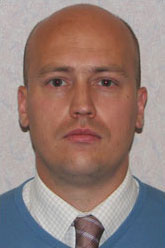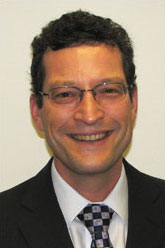Contemplating a career in health and safety?
Here are some answers to the questions you are likely to ask, from interviews with RoSPA consultants and managers.
Nathan Davies, RoSPA Health and safety consultant

Q1. Many people wonder how does someone actually get started on a career in health and safety, so could I start by asking you what qualifications are required to make a career in health and safety?
Nathan: The qualifications that are required to make a career in health and safety are dependent on the type of role that you take. There are many qualifications that are appropriate, but most health and safety practitioners start with short introductory courses. When a greater level of knowledge is required a NEBOSH General Certificate qualification (approximately two weeks full time study) is well recognised. A NEBOSH National General Certificate is, in reality, an essential minimum qualification for any full time health and safety job.
Many people then realise that they and their employers demand a greater level of knowledge. Most go on to study the NEBOSH Diploma (approximately seven weeks full time study). The Diploma is the required level of qualification for most health and safety manager roles. This is a more demanding qualification and I would recommend the Diploma to anyone who needs to have a full grasp of the challenges that a health and safety professional will be exposed to.
Q2. What are employers looking for in a health and safety candidate? Is CMIOSH always required to gain the best jobs?
Nathan: Employers look for candidates with personal skills and attributes which fit with the company and role. Those candidates who are keen, interested and have the ability to adapt to different situations and challenges will be the most successful in finding jobs.
Employers are legally obliged to make sure that the people that they employ are competent. Experience in working in the industry is really useful; CMIOSH is the most popular way of demonstrating that you are capable and knowledgeable. CMIOSH status gives access to the widest range of work and the most rewarding jobs (but it is not absolutely essential).
Q3. What are the options available for people wanting to gain membership of IOSH - do they have to sit official exams and what is the best sort of training to embark on a career in health and safety?
Nathan: Corporate membership of IOSH is gained through a mix of sitting external exams and acquiring experience. You join IOSH as an affiliate member and then progress through the levels of membership with increasing levels of experience and examination.
With a National General Certificate and five years' relevant experience you can progress to TechIOSH level. With a Diploma and two years' relevant experience the CMIOSH grade is available after a peer review.
I would start by trying to gain real practical experience in a health and safety role similar to where you would like to work. I spent a week with a local environmental health department before I began my studies and found the experience extremely valuable. I sold PPE to safety managers before I got my first full time health and safety role. This gave me the chance to talk to experienced people, get to know the problems and some of the solutions to challenges and to understand the terminology and different organisational cultures of many types of workplaces. Many very successful safety managers started off working as health and safety representatives for their employer. You could also ask to get work as an assistant, a junior consultant.
Any experience is better than none, and it will show a potential employer that you are keen and committed. Any practical experience you can demonstrate will pay dividends when you apply for a job in health and safety.
The best training should be delivered by tutors with a proven ability to teach, a high level of knowledge and which offer the opportunity to learn from real practical experience.
Q4. What kind of things should people be looking for when they are trying to find the best safety training courses, to have the best chance of achieving these qualifications?
Nathan: When choosing a safety training course candidates should be looking for organisations that can provide:
a) A venue that you can get to easily, with suitable overnight accommodation available when necessary.
- Flexible dates for study, to accommodate your regular work when necessary. Many students find distance learning difficult and believe that students' sharing their experiences is critical to being successful in your understanding of the health and safety topic
- A venue that is designed specifically for training
- A venue where you feel comfortable; it's very difficult to learn when you cannot relax
- A venue where you have access to further materials and information when you need them.
b) An organisation and tutors that have:
- Recognised teaching qualifications
- Experience in delivery and practical application
- Previous sustained success
- A delivery which allows discussion and sharing experiences
- A varied use of getting the information across (i.e. not death by PowerPoint)
- Trainers that use their experience to develop training material
- The access to support, and further assistance when doing assignments, before, during and after the course.
For example, RoSPA offers assistance to ensure you select the correct safety training course, personal tutors for each delegate and tools such as a web forum so that delegates can contact the tutor in person, over the phone or electronically at the time of their choice. Students also have free use of our health and safety library and Infocentre, where they have access to virtually every health and safety book and report, and magazine ever written.
Q5. Which is the best sort of qualification: NEBOSH Diploma, university degree in health and safety, specialist company diploma or NVQs? What would be the initial stages building up to that?
Nathan: The best sort of qualification will depend on your current situation and experience. I would say that the best place to start is with short courses on topics that are core to the job role: basic health and safety management, risk assessment, accident investigation and training on PUWER (Provision and Use of Work Equipment Regulations). If you can combine this study with the NEBOSH National General Certificate, you should be saving both time and money. RoSPA offers flexible options for the NEBOSH National General Certificate, giving students the best chance of study matching other demands they have on their time and budgets. It is very successful.
The NEBOSH Diploma is an excellent qualification and very useful; there are specialist companies that provide this training, so ensure you choose a good one. The Diploma is equivalent to a university degree (BSc) and can be taken in a shorter period of time. The disadvantages of the Diploma are that those who are not used to studying, sitting still in a classroom and studying all night find it very difficult. It is not easy, and rightly so. If you think you may find it difficult to accommodate the NEBOSH Diploma, an NVQ Level 5 Diploma is available. This offers is a work-based qualification suitable for those in a health and safety management role, which recognises a person's competence using on the job performance for assessment, rather than relying on examinations. Candidates use an online system to help with the process of putting together their portfolios and are mentored by a CMIOSH assessor throughout.
Errol Taylor, Chief Executive, RoSPA

Q1. How does health and safety help with strategic decision making?
Errol: Strategic decision making is all about risk management. Getting the right information on health and safety improves the chances of success, and helps to prevent accidents - which every business needs to do because accidents are so costly, in all sorts of ways that many organisations do not realise before one occurs.
Q2. What sort of training is available to directors?
Errol: Because directors have limited time available they will often not be able to go on pre-scheduled safety training courses. RoSPA addresses this through two routes:
- Conferences, where directors can network and key new developments can be highlighted by top speakers such as leading personal injury barristers and FTSE 100 leading company case studies given by their chief executives
- Tailored consultancy and in-company safety training means that companies can have a day or two of intensive focus on health and safety which is exactly right for their business.
All of these options make directors aware of their legal duties and responsibilities, as well as the savings they could make if safety is properly managed, and the positive benefits of doing it properly.
Q3. Do health and safety career professionals actually reach the top and become directors?
Errol: Health and safety is one crucial element of the mix of skills, along with finance, marketing and human resources, for example. It is becoming increasingly important because of the new corporate manslaughter legislation brought in during April 2008, whereby directors are more likely to be sent to prison for offences.
Q4. How is this situation likely to change further over the coming years?
Errol: The UK is becoming more of a service economy, which brings an increasing dependence on SMEs (small and medium-sized enterprises), where the divisions between management and director roles are more blurred than in larger organisations.
Q5. Could you give some examples of the biggest safety risks being faced by leaders?
Errol: British employees undoubtedly face their biggest risks while driving for work. There is a very personal effect on individual directors - a director can set an appropriate example - or an inappropriate one. For example, if they speed to reach yet another meeting, or if they work long hours and drive a long way home after exhausting meetings.
Directors have the legal responsibility if things go wrong and police will prosecute if, for example, a driver falls asleep at the wheel because of an over-long working day.
Q6. What can they do about it other than set an example?
Errol: One of RoSPA's key issues is the management of occupational road risk - driving for work - which is why we offer a full range of solutions which can be targeted at those deemed to be the highest risk. These range from consultancy to driver training, and also computer-based driver risk assessments, which can be the cheapest, but most effective, way to start.
Q7. What comes after that?
Errol: Consider again the director who is a keen motorcyclist - if he or she suffers an accident it could bring the business to its knees! From RoSPA's work with its key major award winners we know that one in five accidents occurs in the home or while at leisure, so if we can reduce those, then the negative cost that accidents cause the workplace can be greatly reduced as well.